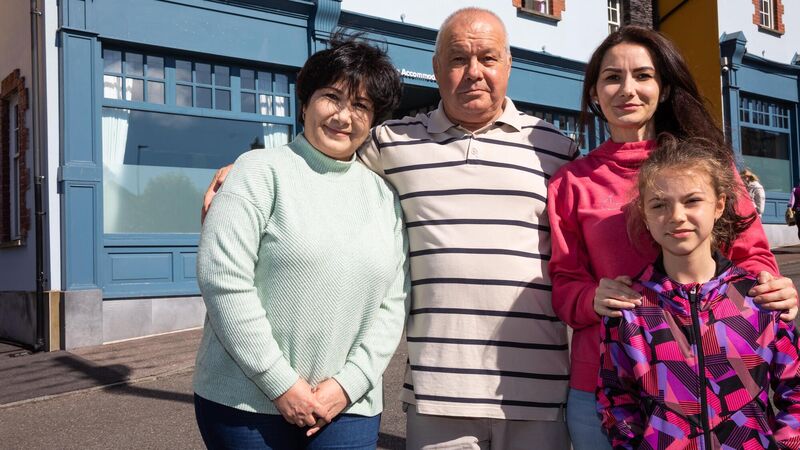Ukrainians in Kerry: ‘For me it’s a shock. No public transport. It’s too far from everything’

The three generations of the Malomolkina family, Svitlana, Kosta, Anna, and Alina, from Mariupol and who are now living in Caherciveen, Co Kerry. Picture: Alan Landers
Kerry has welcomed its new Ukrainian population enthusiastically, but its towns need matching commitment from the Government in terms of services provided.
With services in Kerry stretched as it is, there is a worry that they could be at their limit for the existing and new communities alike, according to various political, business, and community figures throughout the county’s towns.














